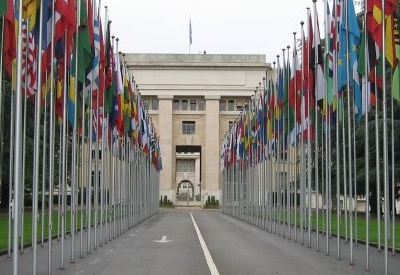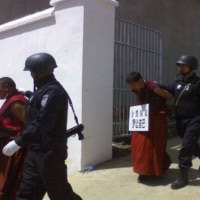Southeast Asia engulfed in a Hobbesian arms race
 |
| Frontispiece (Leviathan) - Abraham Bosse 1651 |
Abstract
A social contract is necessary to mitigate against climate change and expansionism by way of multilateral directive. Is collective security a Leviathan interpretation in 2019, a concept to stave off military combat and ecological disaster, or a blind ambition.
Keywords: Social contract, collective security, expansionism
Federalism, Democracy, and BPD
Because of accords such as the 'Paris Agreement (2016)' or through the auspices of the UN we have a framework for dialogue and agreements. The contracts between individual states are unenforceable due to the change in political personnel over the course of their respective governments. A new leader, not beholden to a particular policy can simply shrug and ignore the backdrop of the spirit of an agreement to suit the underlying ideology of their Party. And why not? Job security, never mind the benefits of a cushy pension are at risk of being swept away after the next mandate. On a national level, the loss of jobs is sure to hurt their re-election prospects, too. So, why not engage the electorate, for the most part, in a social contract that pacifies those elements that may be on the other side of a cleavage relating to an issue that is impactful. In Canada, the province of Alberta contains Bitumen (heavy crude) and has its goal of selling their energy to sustain their citizens employment picture (and become a net contributor to the equalization payment process in Canada.) Alberta's dilemma is that it is landlocked and needs a pipeline to transport its oil. It is facing opposition from the Aboriginal communities to the west, the federal government to the east, and the United States to the south as the Keystone XL pipeline is facing stiff competition in Congress. Now, imagine if the Saudi government put restrictions of certain domestic producers to sell their products - external actors would swoop in and barter for deals outside of the Kingdom's orbit to capitalize on the opportunity (the Saudi's have taken ARAMCO public ensuring P&L. )
Federalism provides the glue to hold together a framework of nation states to ameliorate against foreign influence, be it militaristic or financial. And, if challenged within the framework of Canadian confederation or the European Union, for instance, internal actors can opt to leave along the lines of Great Britain through Brexit, Quebec through a provincial vote, or The Catalan independence movement apart from Spain. This can be considered a weakness of democracies as they are tethered together by a social contract in another vestige through free elections. When the Soviet Union dissolved into the Russian Federation, there existed no mechanism to manage the various ethnic groups, hence, the maelstrom that lay at the feet of former leader, Boris Yeltsin to manage the cleavage between ethnic Russians on the one hand and the Muslim community, on the other. With the emergence of Vladimir Putin in a Soviet style leadership capacity, conveniently labeled a "managed democracy," Russia and Putin moved towards unlimited term limits to provide an iron - curtain, if you will, against any groups, Ossetians in Georgia, Moldovans in Transnistria, and Chechens (Chechnya) that have separatist ambitions, among others. This approach towards free form socialism seems to have worked for Russia, as it now, and has been expanding its military and home base with the annexation of Crimea and lingering presence on the Ukrainian border. With Russian independence or interdependence on our minds we can observe a similar effect in China as it celebrates the success of 70 years of communist rule, whereby Chiang Kai - shek beat a hasty trail across the Taiwan Strait after the defeat of the Kuomintang government during the Chinese Civil War and capitulation to Maoist forces. Chiang Kai - shek and the defeated Kuomintang government failed to muster an uprising from Taiwan to recapture the Mainland, and while relations between the two are frosty at the moment, the absence of a ceasefire or peace treaty, hostilities between the two sides lay with a determined President Xi to "unify" the island and the mainland in the PRC's quest for total domination of the South China Sea. The U.S. Energy Information Agency estimates that 11 billion barrels of oil and 190 trillion cubic feet of natural gas deposits are available for extraction in the South China Sea. Albertan oil sands generates approximately 1, 300, 000 bpd. To borrow from the 1992 Clinton campaign: It's the environment, stupid.
Chinese expansionism creating unforeseen difficulties
During this period with Hong Kong being affected by mass protests owing to a failed extradition bill that sought to return those charged with offences on the mainland, and returned to China from Hong Kong to face those charges, the infiltration of China into the Hong Kong political system ahead of the 50 year moratorium ending in 2047, and the runaway cost of living, has prompted large protests involving students and those from all elements of Hong Kong society. The failed Bill has some logic to remove Hong Kong as a haven for fugitives. The pro - democracy movement sees a clause in the Bill which allows for authorities to arrest individuals in Hong Kong who are dissenters opposed to Chinese rule. The PRC is supportive of Hong Kong executive - Carrie Lam, who is torn between alleviating the crisis and toeing the Party line back on the Mainland with her superiors. Indeed, Chinese officials are cavorting to the international press, American and Taiwanese officials regarding interference in Sino politics with the "one system-two countries" structure paramount to the governing bodies in Hong Kong (1997) and Macau (1999.) The central government accuses both America and Taiwan of interference, but, also of harbouring separatist elements who wish to contain China's colonial ambitions with a Fifth Column of support in favour of a more stringent form of democratisation on the mainland. Supporters seek sovereignty for Taiwan and support for Tsai Ing -wen the Republic of China - President - a Democrat, while universal suffrage in Hong Kong is central to the protest movement. Taiwan's national election is January 11, 2020.
American support for the affected actors with a burgeoning Japanese military program and the UN arbitration panel siding with the Philippines, Brunei, Taiwan and others against a "nine dash line" which allows China access inside these nation states exclusive economic zone (EEZ) to acquire some of their oil and gas deposits, continues to provide drama on a regular basis. An arms race has ensued in the region, with China the dominant actor. Owing to a miscue in the air or sea can surely lead to an outbreak in hostilities that both nuclear powers want to avoid.
The question now: is there a social contract or agreement that can be fostered to mitigate against a confrontation that will be disastrous for the environment and human capital in the region?
Therefore, can a agreement between a sovereign power such as China and a smaller nation - state have a lasting effect in a tumultuous region like the South China Sea? The difficulty of this answer is not in the traditional social contract sense. All citizens give up some rights to the state in exchange for security and services. In Canada, there is a federation that provides collective security to the provinces from external threats. In the case of internal threats, such as acts of terrorism, the agencies to manage such incidents are the Royal Canadian Mounted Police (RCMP) and Canadian Security Intelligence Service (CSIS) which covers all threats on a national level. The benefits of federalism are shared as is the cost, though provinces, that are deemed needy and receive equalization payments at the expense of the provinces that happen to be performing well, fiscally.
Leviathanation
Human rights are not in question with the Charter of Rights & Freedoms in Canada. Libertarians would despair that, why the need to pay a tax on something that they never use. That is a fair argument. Imagine the Hobbesian state if we only paid for certain necessary goods on a piecemeal basis. There is a well regarded professor at Waterloo, a Libertarian who has a Chamber music venue within his residence. His argument against city provided services like public swimming pools, because he doesn't use them is valid. But, look under the hood a bit further and consider that if these services were not available to the local youths, they may engage in vandalism and target his venue if they do not have another outlet. They may target him anyways because they hate chamber music. So, while taxation is always going to be a contentious matter, it provides it's element of collective security on a regional level.
In international relations and with a super-power that is now China, the international community faces a challenge of how to rein in the PRC in a state of nature, that is, in the central government's opinion, their domain in Southeast Asia. The purview of the majority, seems to believe that the UN Security Council is up to the task. However, with a vote against dissenting members and as a P5 member state (Russia/China/France/Great Britain/ United States,) China can quash sanctions presented against it, leaving individual states to enact their own sanctions against the mainland and/or rogue powers. The UN it would seem works well outside the group of middle and larger powers regarding climate change, social issues, genocide, etc. In a Hobbesian sense then, the UN is weak as a means of collective security. So much so, that at the recent NATO gathering in London (December 3-4, 2019,) member states advocated for the need to collaborate on how to manage the rise of China. Imagine Hobbes turning over now, "why are two collective security mechanisms competing against one another?" The money could be used for things like swimming pools, and the effects of climate change. Benedict Anderson proclaimed that "...nation - stateness is the most universally legitimate value in the political life of our time." Those nations strong on soft power have fewer concerns. Authoritarian regimes whose locus is a cult of personality face a narrow threshold to spur growth, except in China, where goods and labour support mass - line populism bred during the early years of Mao.1 Consequently, the fight to sustain environmental integrity is a Utopian concept in China (and India) that is on a fast pace to industrialize and may face limits on green energy depending on the duration of a trade war with America. India was recently listed as having the poorest air quality on the planet according to Reuters. 2 Both economies have to find a way away from coal, auto related pollution, and towards water conservation as it is becoming a precious commodity akin to oil. No wonder then, that the central government is clamouring for energy gifts from its neighbours. In the throes of facing expansive American tariffs on December 15, 2019; Chinese officials are presenting a modified approach apart from the firebrand rhetoric that has been the case through media outlets. China Foreign Minister - Wang Yi, spoke at the UN regarding the need for negotiations with American officials to proceed “in a calm, rational and cooperative manner”, though concomitari, he warned of the dangers of high expectations by American officials "...should the other side act in bad faith…we will have to make necessary responses to safeguard our legitimate rights and interests, and to uphold international justice.” China's well developed Politburo is coalescing during times of need and faced with a strong(er) opponent. Based on the historical nature of mass - line populism in China to the present, and purposeful rhetoric by state officials, a Hobbesian influence remains strong, particularly, with the upcoming Taiwanese election creating a "war of everyman against everyman" as
1 Mass - Line definition according to Wikipedia. "The mass line (from the Chinese 群众路线 qúnzhòng lùxiàn) is the political, organizational and leadership method developed by Mao Zedong and the Chinese Communist Party (CCP) during the Chinese revolution. The essential element of the mass line is consulting the masses, interpreting their suggestions within the framework of Marxism-Leninism, and then enforcing the resulting policies."
2 Manas Sharma, Gurman Bhatia. "World's worst air: India's pollution crisis in perspective." Reuters. 8 November 2019. <https://www.reuters.com/article/us-india-pollution-map-graphic/worlds-worst-air-indias-pollution-crisis-in-perspective-idUSKBN1XI19Y.> 10 December 2019.
 |
| Huang Yongping (1954 - 2019) - "Leviathanation" |




